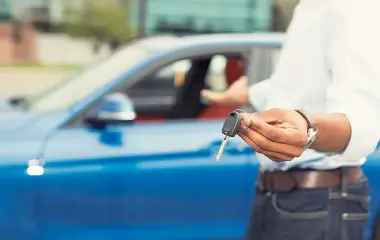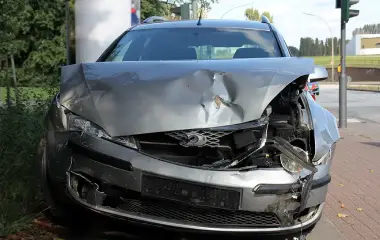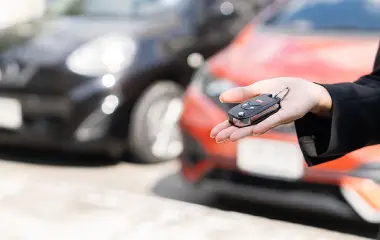‘Non-running cars’ is a bit of a vague term, isn’t it? You could be looking to sell a lightly damaged car that could be given a second chance with a few repairs, a totally broken car banged up in a wreck, or just an old car that’s been collecting dust in your garage.
Whatever the reason, you need to sell your non-running vehicle, and you want to get the best price for it. Well, we’re going to teach you how. Let’s get into it.
Can you trade in a non-running car?
Yes. It is legal to trade a car that doesn’t run in to a car dealership. However, car dealerships may not be your best bet, as they’ll only take vehicles that are in good enough condition to be made roadworthy with relatively cheap repairs. The lower the repair costs, the higher their profit margins when they sell it second-hand.
Fortunately, dealers aren’t your only potential buyers.
Who can you sell your non-running car to?
You have three options for selling your non-running vehicle.
- Sell to a car dealership
As we mentioned, dealers can be extremely picky about the non-running cars that they buy. If your car requires expensive repairs or is a clear write-off, then they aren’t likely to buy it at all. - Sell to private buyers
Selling your car privately will give you more competitive choices, depending on the nature of your car. If it’s badly damaged or old, but a rare, classic or specialty vehicle, buyers might still consider it worth the investment. - Sell it to a professional vehicle salvager
A car salvager will likely be willing to buy your car as is, no matter how bad its condition. The worse its condition, the harder it will be to find a buyer, but a salvager will still pay a fair market value for the components and materials they can recycle for a profit.
Who should you sell your non-running car to?
We suggest you gather quotes from dealerships, salvagers and private buyers — you never know where you’ll get your most competitive offer from. Once you have two or three serious buyers, see if they’re willing to bid for it. Otherwise, go with the highest price.
At 1800 Salvage, we’re known for offering fair prices and instant quotes no matter the condition of your car.
.jpeg)
Is it worth repairing a non-running vehicle for sale?
To figure out if repairs are worth it, you’ll need to compare the cost of repairs against the potential sales price of your car.
Figuring out the cost of repairs should be fairly simple; ask a mechanic to inspect your vehicle. We recommend getting at least two quotes.
Estimating the value of your car can be trickier, especially since it’s no longer running. Putting aside the vehicle’s condition, you can estimate the value of your car with the following details:
- Make and model
- Age
- Kilometres driven
You may be able to find similar second-hand vehicles for sale or use a car value calculator. Once you’ve got that price, then try to factor in the car’s condition. That might take a bit of guesswork, but your mechanic may also be able to help.
If the potential value of your repaired vehicle is greater than the cost of repairing it, then go ahead and take it to the mechanic. But even if the numbers work out, remember that repairs also take time, and maybe you just want to be rid of the car as soon as possible. If that’s the case, just sell it and be done with it.
How to trade in or sell your non-running car legally
To sell your non-running car legally, you will need to provide the required documentation to VicRoads (or your local state road authority).
Trading in or selling a registered car
If you are trading in a registered vehicle, you will need to provide VicRoads with:
- A vehicle transfer form
- The vehicle’s registration certificate
- A copy of your driver’s licence
If you are selling your non-running vehicle to a private buyer, then you will need to provide a certificate of roadworthiness.
If you’re trading your vehicle to a dealership or selling to a salvager, then you will not need to provide a certificate of roadworthiness.
Trading in or selling an unregistered car
If your non-running vehicle is unregistered, then the only paperwork you need is a receipt of purchase for your records. Dealerships and salvagers will provide you with a receipt, while you will have to provide your own when selling privately.
You do not need to provide a certificate of roadworthiness.
Trade your non-running car for instant cash and free towing
As one of Australia’s leading vehicle salvagers, we’ll put in an extremely competitive bid for your car. We’ll buy it whether it runs or not — it doesn’t matter to us whether it’s a late-model sports car or a rusted heap from decades ago.

.jpeg)

.jpeg)

.jpeg)

.webp)
